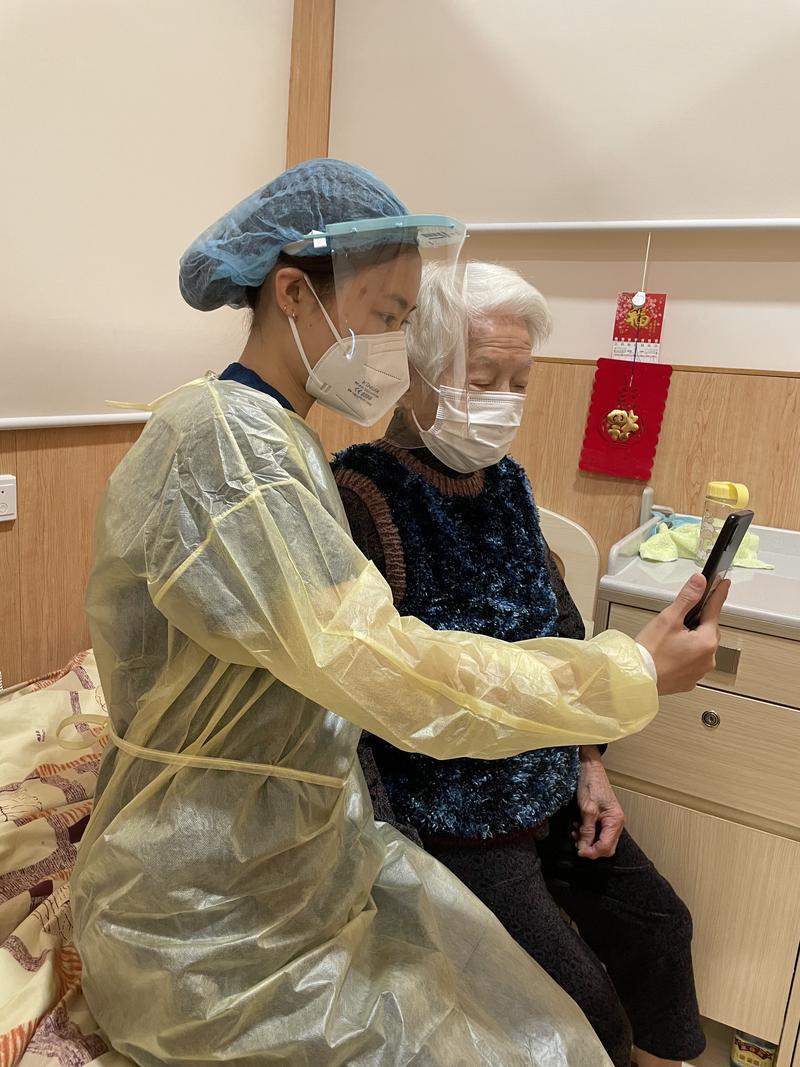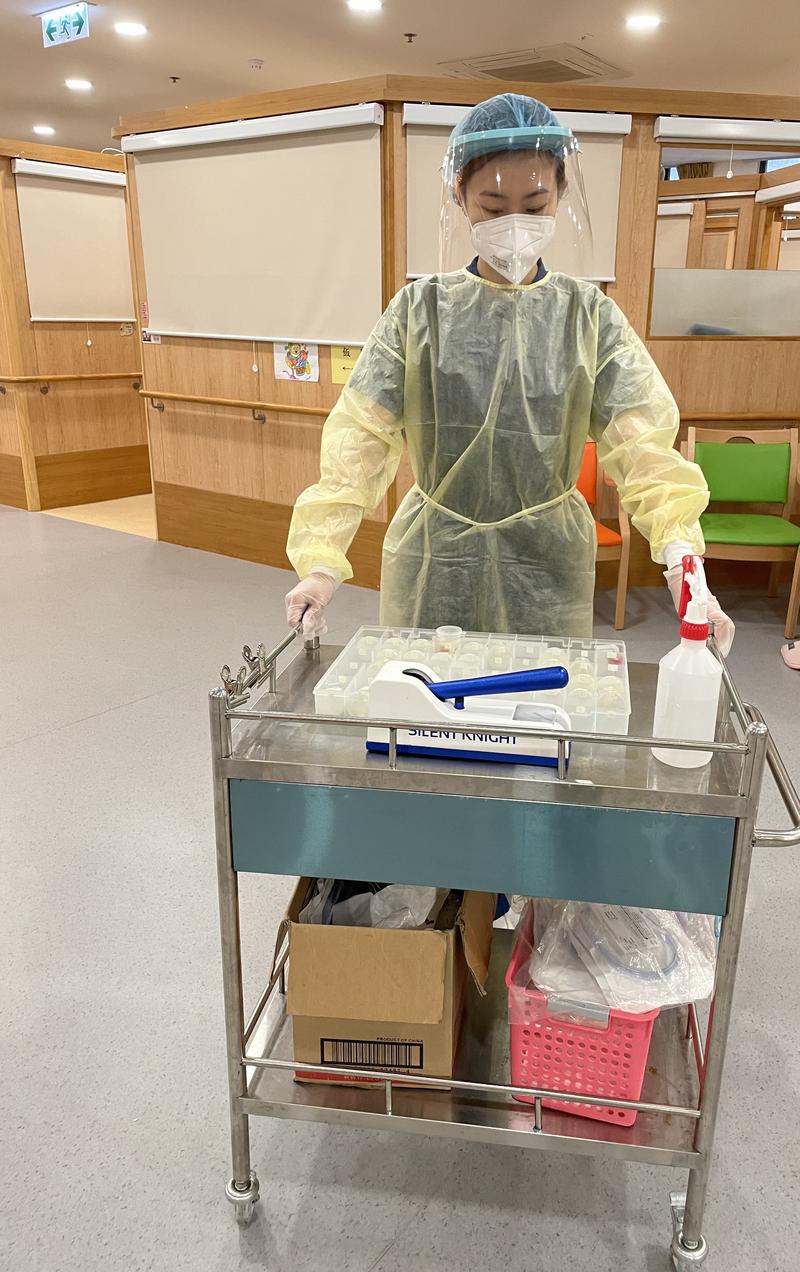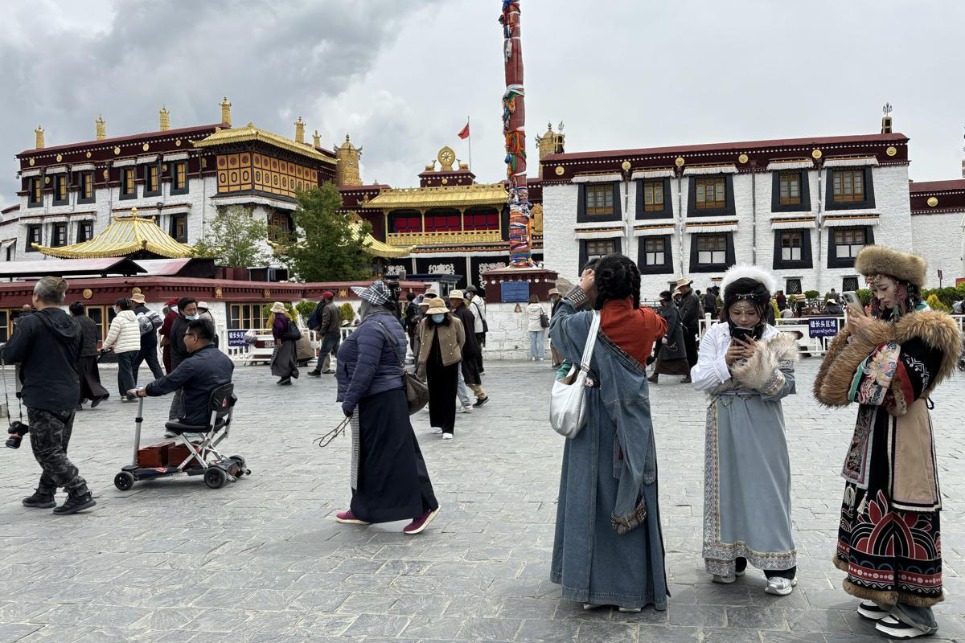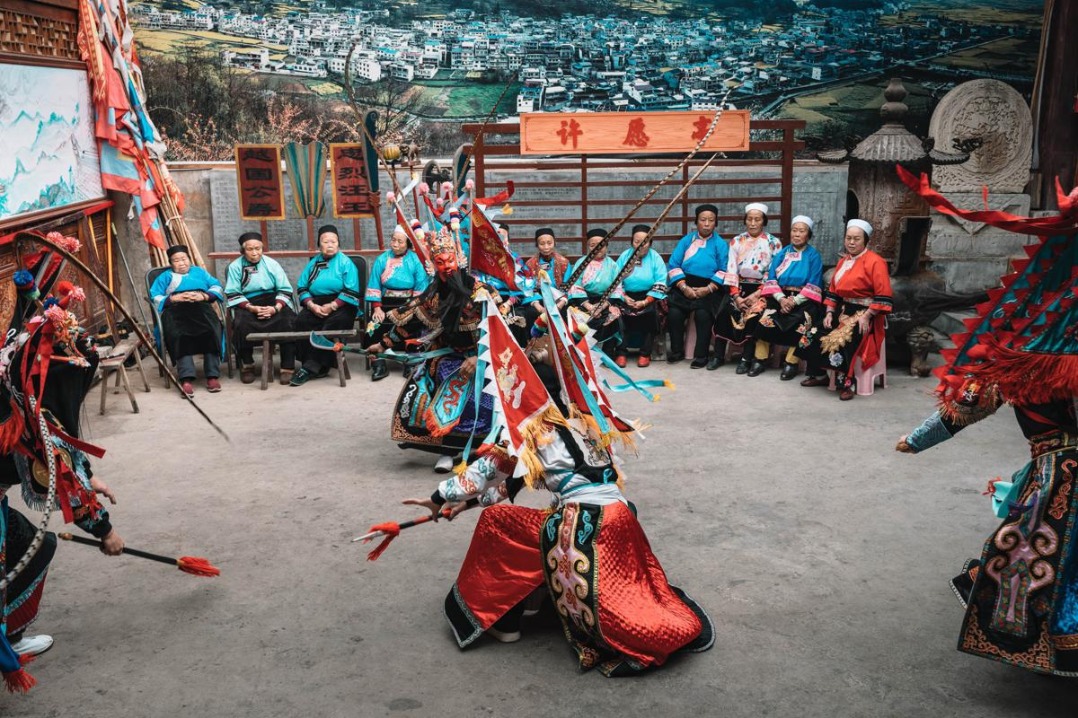COVID diary at the forefront: A healthy dose of positivity

Editor's Note: In our COVID Diary series, the spotlight is on ordinary folks who share first-person accounts of their fight with the virus and how they've helped others in need. In the fourth story of the "Guardians in Harm's Way" series, China Daily puts its lens on the city's hardest-hit elderly care homes. Among those who were infected while taking care of vulnerable elderly patients was 25-year-old Luk Tsz-ying, an enrolled nurse at Prosperous Garden, which is a private nursing home in Tseung Kwan O. She shared her struggles with COVID-19 with China Daily reporter Shadow Li.

It was the third day in a row that the elderly man, a happy camper at the residential care home where I work, came out to the nurses' station to check on his neighbor, one of his close friends here.
He was there when his neighbor, a gastric cancer survivor, was rushed to the hospital in an ambulance after testing positive for COVID-19.
He got the hint when he saw no sight of his buddy days after the scene. The hospitalized neighbor didn't make it and became one of the casualties of the deadly pathogen.
The elderly man was gripped by panic, fearing that he might be next in line to come down with the coronavirus and be sent away.
Noticing his apparent despondency, I immediately contacted a social worker and arranged a video call for counseling. His family members were also duly notified and sent in their words of comfort via video link.
Many elderly residents in nursing homes have experienced anxiety, fear, solitude and the pain of losing of close friends. All of these were heightened by the pandemic.
One elderly woman had a hard time accepting the reality. Before the pandemic, her husband, who always prepared little surprises of her favorite snacks, had visited her every day. As the pandemic worsened, outside food was banned, and so were the visits. The elderly residents were asked to try to stay in their own rooms in a bid to reduce contact with others and stop the virus.
Feeling depressed, she would come out of her room to argue with the nurses. Facing her wrath, all we could do was to try to calm her down and repeatedly explain to her what was going on. Of course, we also had a useful helping hand — her husband, who seemed to always be able to comfort her.
Sometimes, this back-and-forth conversation would happened five times a day. It went on for a while until things took a turn for the better. Now, we have her tantrums only once every few days. I guess she had come to terms wit reality.

When the first infection broke out in our nursing home on Feb 23, we called the families of all the elderly in our care.
Like everyone else, my family also tried to talk me out of sticking to my post when they learned of the first infection at my workplace.
But I knew that if I flinched, the elderly, mostly unable to take care of themselves, would be left alone and unattended. It is not an option for me not to go to work. I had to keep the big picture of the whole nursing home's operation in mind and quit being self-centered. My family eventually came around.
On March 4, I began to show symptoms of a painful sore throat. I tested negative before work the next day. After the pain came back that evening, I got tested the next day but the result was still negative.
On March 7, the virus finally revealed its true colors — a faint line and a clear red line, which meant "weak positive".
In the following days, I stayed in a hotel for quarantine to avoid passing the virus to my family and those at work. Even before I got infected, I had observed social distancing measures in our home, knowing fully well that I work in a high-risk environment. My food was served separately, and we always wore masks at home.
So even under quarantine, I would check with my colleagues to see whether they needed my help since I had been responsible for liaising with residents' family members.
I was cleared of the virus a week later and returned to work right away. In the morning, I would start my day by handing out medicines to about 60 senior residents, helping rubbing medical cream on some of them and cleaning their wounds. We have three nurses and two health workers who assist us.

The division of work blurred during the pandemic, which strained our manpower. When the first staff member was confirmed infected, we were left shorthanded. At the height of the outbreak, we were 10 percent down on our usual manpower. One caregiver had to take care of a dozen older adults.
The nurses sometimes helped out with work that was usually done by caregivers, such as changing diapers and helping them take showers. And now we usually pair up to take care of residents to be more efficient.
With the weather getting warmer, even cleaning the resident's wounds would make me, dressed in full protective gear, sweat from head to toe. I would try to do things, such as drinking water or going to the bathroom, at one go during my lunch hour to save myself the hassle of changing the protective gown, taking off face shield and masks. And normally, I would be five hours into my daily nine-hour shift when I can take my lunch.
Social distancing rules are also in place in the care home. We canceled mass activities, and the residents are advised to stay in their own rooms. But the difficult part remains keeping an eye on the sometimes unmasked elderly, who like to wander around to the lobby to watch television, one of their favorite activities here. It's even harder with some of the older adults who have Alzheimer's disease. They tend to forget your repeated reminders to put on masks and stay in their room.
The pandemic has left many in low spirits, myself included. But only by sticking together can we get through this. Stay positive, and we will beat it in no time.

- Exhibition highlighting the 'Two Airlines Incident' opens in Tianjin
- Average life expectancy in Beijing rises to 83.93 years
- Energy drink overdose sends delivery worker to hospital
- GBA and Hainan deepening cooperation to boost innovation and sustainable growth
- Beijing mulls including the costs of embryo freezing and preservation in medical insurance
- Rocket developed by private Chinese firm fails, loses three satellites





































